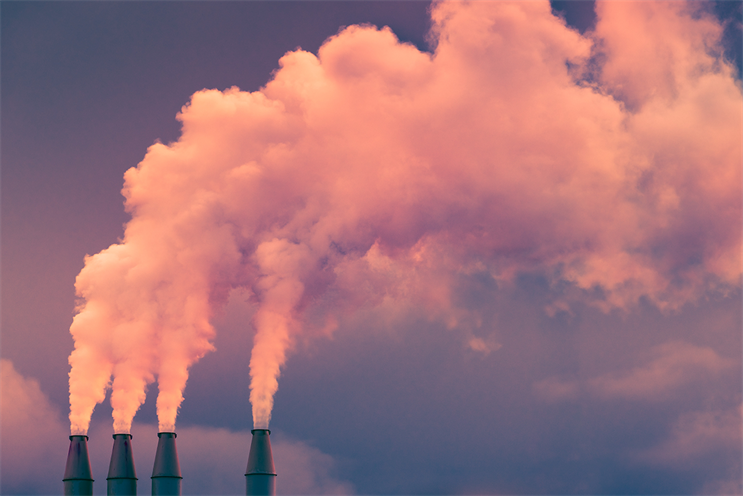
We are fast approaching the point of no return in the fight to save future generations from the runaway effects of climate change.
If things continue to escalate at their current pace, global temperatures will rise 3.7 degrees Celsius by 2100 – well above the maximum 2 degrees target enshrined in the Paris Agreement. Such an increase would represent a grave, existential threat to much of life on earth.
Simply put, if we want to keep warming limited to the desired 1.5 degrees Celsius and leave behind a habitable planet for our children and grandchildren, a 55% reduction in carbon emissions by 2030 is crucial. This is by no means impossible.
OK, how do we get there?
The time for developing novel technologies to halt the rise is over. We need NOW, not NEW.
Speaking at Future Planet’s recent Race to Zero event – part of the community of change-makers 10X Climate series – Jonathan Foley, executive director at Project Drawdown, stressed the need to focus on solutions that already exist.
We must put more pressure on governments to move away from fossil fuels at a quicker pace using these existing solutions. One way of achieving this is by creating inclusive movements centred on the fact that human beings are stewards – not conquerors – of nature.
Such a shift in mindset – allied with a groundswell in opposition to the short-termism inflicted on societies – would leave those in the highest echelons of power with less space to hide. We can’t keep turning a blind eye. Angry Tweets only go so far.
From a business perspective, there’s so much we can do – now.
Carbon offsetting schemes are a great starting point, with a multitude of consultants specialising in helping businesses calculate their footprints and offset with the likes of tree-planting.
Foley, however, urges companies to think beyond offsetting alone. He outlines three key areas of focus that could drastically accelerate the halting of climate change’s worst effects:
- Reduce sources of emissions
- Support sinks
- Improve society
Let’s take a quick look at what each of these means in more detail.
Reduce sources
The five big sources of carbon emissions are: electricity (25% of global emissions); food, agriculture and land use (24%); industry (21%); transportation (14%); buildings (6%); other (10%). The first three are absolutely key.
Surging forward
The electricity we use is still primarily produced by the burning of coal, oil or gas. Though there is a gradual move to renewables in motion, the pace of transformation simply isn’t fast enough.
Solar, wind, rain, wind and biofuel technologies have matured significantly as alternative solutions in recent decades. Yet, in Q1 of 2020, just 26% of global electricity supply was sourced from renewables.
This need to shift production to green alternatives will not be news to anyone, but it underscores the urgency for companies to become more aware of their sources. With a swell in providers now offering renewable energy, switching could be one of the best things your business can do.
Energy efficiency is also key – we’re simply using too much. Improving building insulation, installing high-performance glass, introducing LED lights, bringing in automated building systems, smart thermostats, heat pumps and enhancing water distribution are all ways businesses can improve their energy efficiency. If you don’t own your offices, put pressure on whoever does – it can also save you and them a lot of money in the long run.
We are what we eat
The climate crisis we find ourselves in is man-made – and it’s getting worse, as populations grow and consumption increases.
First and foremost, we need to look at our diets and wastage. Around a third of the food on our planet is never eaten, meaning the land and energy required to produce it is for nothing. At the same time, we’re eating more meat than is nutritionally recommended. By adopting a more plant-based diet, we can reduce emissions from animals, land-clearing and fertilizer use.
We also need to address the sheer amount of land used for agriculture. Protecting natural ecosystems such as grassland, forests, coastal wetlands and the territories of indigenous people significantly boosts carbon capture (see sinks), while eliminating the emissions-intensive process of land-clearing and deforestation.
Businesses need to look at their supply chains: is the produce you use sustainably sourced? Additionally, are you promoting unhealthy lifestyles?
Finally, consider sponsoring conservation projects in the community and beyond. Each one is precious.
Putting industry to good use
As businesses, we completely depend on industry to produce everything we sell. So, where on earth do you start if you want to make a difference?
By far the biggest emitter of carbon in this area is refrigerants. Many companies use fluorinated gases to keep things cool, which is problematic considering this is a huge producer of greenhouse emissions. Alternatives such as ammonia and recaptured carbon, on the other hand, carry much less of a burden.
Then there are the materials we use and the waste we produce. Plastics, metals and cement are all carbon-intensive products to manufacture – yet we’re using them more than ever. By turning to bioplastics and alternative cement products, we can certainly make inroads.
But perhaps a more viable solution for many is focusing on the use of waste. Recycling, upcycling, composting and waste-to-energy techniques (incineration, gasification etc) can significantly lower carbon emissions.
Support sinks
Nature doesn’t solely rely on humans to reduce carbon emissions, of course. Within its arsenal are a plethora of naturally occurring processes that clean the air and lower greenhouse gases in the atmosphere.
And yet, we humans sure are doing a fine job at making it harder for ourselves. We need to stop chopping down forests and commit to restoration immediately. We also have to make better use of degraded land, concurrently increasing our utilisation of managed grazing, silvopasture and perennial staple crops.”
As for our seas, let’s consider the fact that 71% of the planet is covered by ocean. Since the 1980s, 20-30% of all man-made carbon dioxide has been captured by the blue stuff, but this is having a heavy toll. Sea levels are rising, water temperatures are warming and acidity is increasing, impacting marine life and carbon levels significantly.
Much like on land, sea-borne agricultural practices must shift to a more re-generative approach that considers local communities and natural eco-systems. With a wealth of opportunities to sponsor, partner and even spearhead the conservation of land, ocean and engineered sinks, their role in the race to zero will depend largely on the value we place on them.
A human-first approach
As businesses, it’s imperative to engage stakeholders, decision-makers and employees. If there are knowledge gaps, fill them. If ambivalence percolates through the company, make the case for business transformation in a positive tone. Tailor your approach to individual motivations – are they emotive or financial, for example – and create a sense of collective ownership.
Yet, we also need to look beyond the office. When all is said and done, our chances of long-term success will largely depend on education, equality and health.
Education empowers people to make informed decisions; brands have a massive opportunity to spark positive change in their marketing communications by explaining why they choose to implement sustainable practices, and what value those practices create for the consumer in the wider sense.
With the global population expected to reach 10.1 billion in 2050, fertility rates will also play a huge role. The primary issue here is that many women around the world lack access to reproductive healthcare and family planning, effectively depriving them of the right to choose how many children they have.
Though it’s important to note the difference in individual carbon footprints between people in the North and those in the developing South, a global effort to create greater equality would provide millions more women with political, social and economic empowerment. And this can only benefit the evolution of humanity and our efforts to reach net zero.
We must all push for an equal world with our policies, activism and pockets.
The journey of a lifetime
It’s important to accept that not one single company will have everything sussed out. Becoming truly sustainable is a journey with no real end – undertaking it is what matters. If, like Guerillascope, you are embarking on your own, we’d love to hear how you’re getting on. By coming together and sharing our experiences, businesses can play a pivotal role in driving the change we need now.



